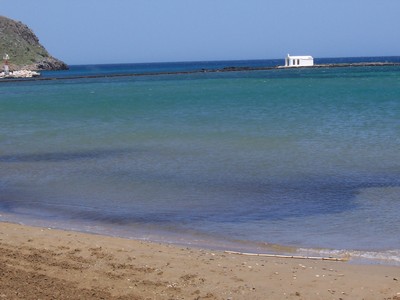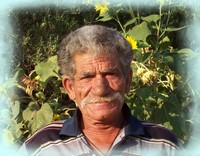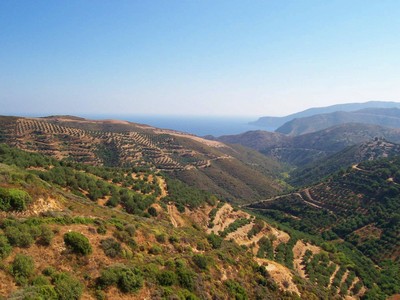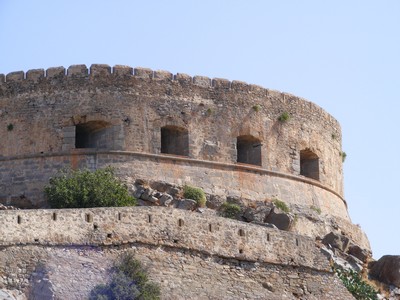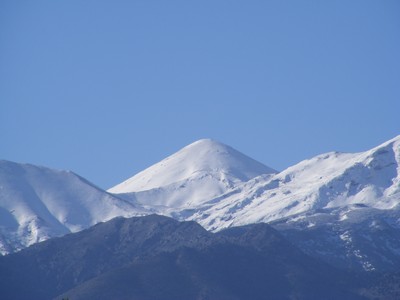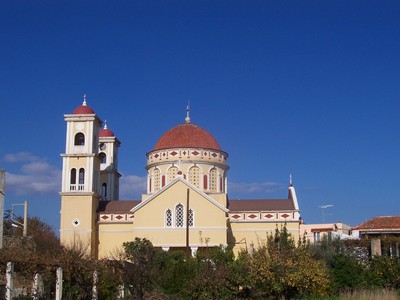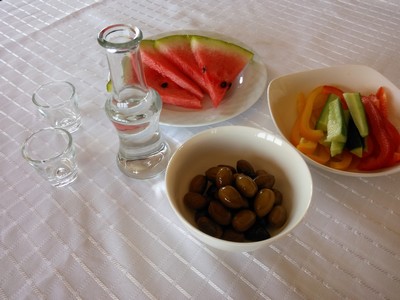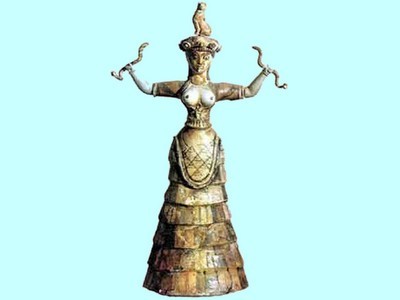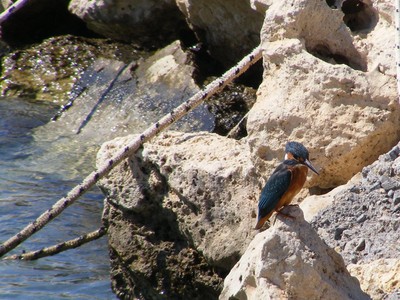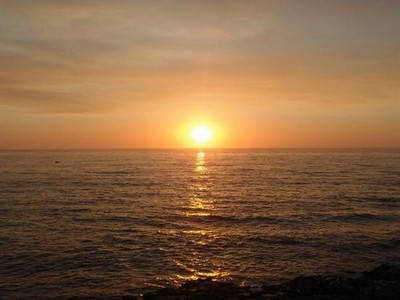Crazy about the Greek island of Crete!
Traditional Cretan Diet Guide
Table of Contents
Your Traditional Cretan Diet Guide:
Introduction
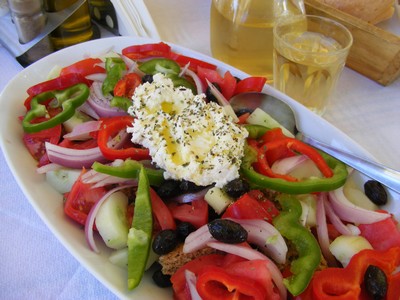
In this traditional Cretan Diet Guide, you'll learn that the Cretan Diet is famous, - and some say miraculous!
It is the original Mediterranean diet. Culture, history and geography have helped create a combination of foods and lifestyle which provides a unique diet that is highly nutritious, prolonging life and helping to prevent many of the modern diseases that shorten the lives of millions of people every year in the West.
Western eating habits are the source of much debate at the moment, with concerns over the growing obesity levels in Europe, North America, and all the so called affluent western nations.
Finding the ideal diet is becoming increasingly important for people who want to improve health and reduce weight. Fortunately, there is a diet that is healthy, natural, tasty – and proven to prolong life!
How The Traditional Cretan Diet Ensures Good Health and Long Life!

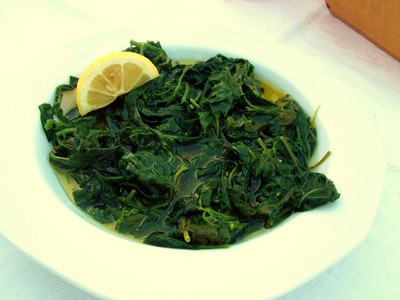
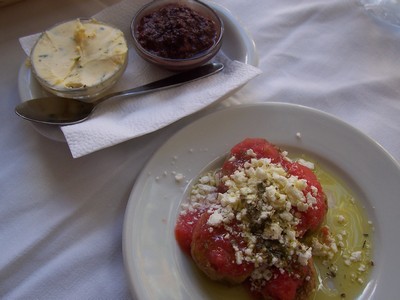
As part of this comprehensive traditional Cretan diet guide, we have collected all the information you will need to enjoy the Cretan Diet, including details of the simple ingredients and easy to do Cretan cooking and Cretan Diet Recipes, to help you benefit from this wonderful food.
The Cretan Diet is both simple and wholesome.
It features plenty of fruits and vegetables, beans, pulses and grains in abundance, olive oil as the principal fat, moderate drinking of wine and raki, herbal teas like Greek Mountain Tea said to be a "cure all" or Dittany of Crete said to be an aphrodisiac! Honey and yogurt, occasional use of lean red meat, and low to moderate consumption of dairy foods, fish and poultry.
A study of the eating habits of 7 developed countries closely monitored the health of a group of 700 men of the island of Crete over a period of 30 years, ending in 1991. The study showed that, compared to the other countries in the study, the Cretan men had the lowest percentage of deaths caused by heart disease and various forms of cancer. The study also showed that the Cretan population lived the longest.
What's the Secret of the Cretan Diet?

Natural, traditional and local produce are features of the Cretan Diet, but some other features might surprise you. For example, in the traditional Crete Mediterranean Diet almost three times more fat is consumed than what the average American eats! The difference is that the Cretan consumes only olive oil, a substantial amount of which is neither boiled nor fried.
Crete olive trees are said to outnumber the Cretan population by 500 to one! It is believed that the qualities of olive oil are key in maintaining good health and preventing illness. Unlike other oils, olive oil is rich in monounsaturated fatty acids which are resistant to oxidation.
Olive oil is unique in that it is packed with anti-oxidative agents, which bond with toxic free radicals creating a natural defence against many different kinds of cancer. It’s time to throw away all other types of cooking oils! Another surprise is bread. Three times more bread is eaten in the traditional Crete diet than the diet eaten by the Americans, for example. However, this is still less than other Mediterranean areas.
The famed Mediterranean Diet varies in this way to its Cretan cousin. The type of bread eaten by the Cretans is mainly wholemeal, except on some special feast days connected to the Greek Orthodox Religion. Christmas in Crete, Easter and Saints' Name Days all produce their own special breads.
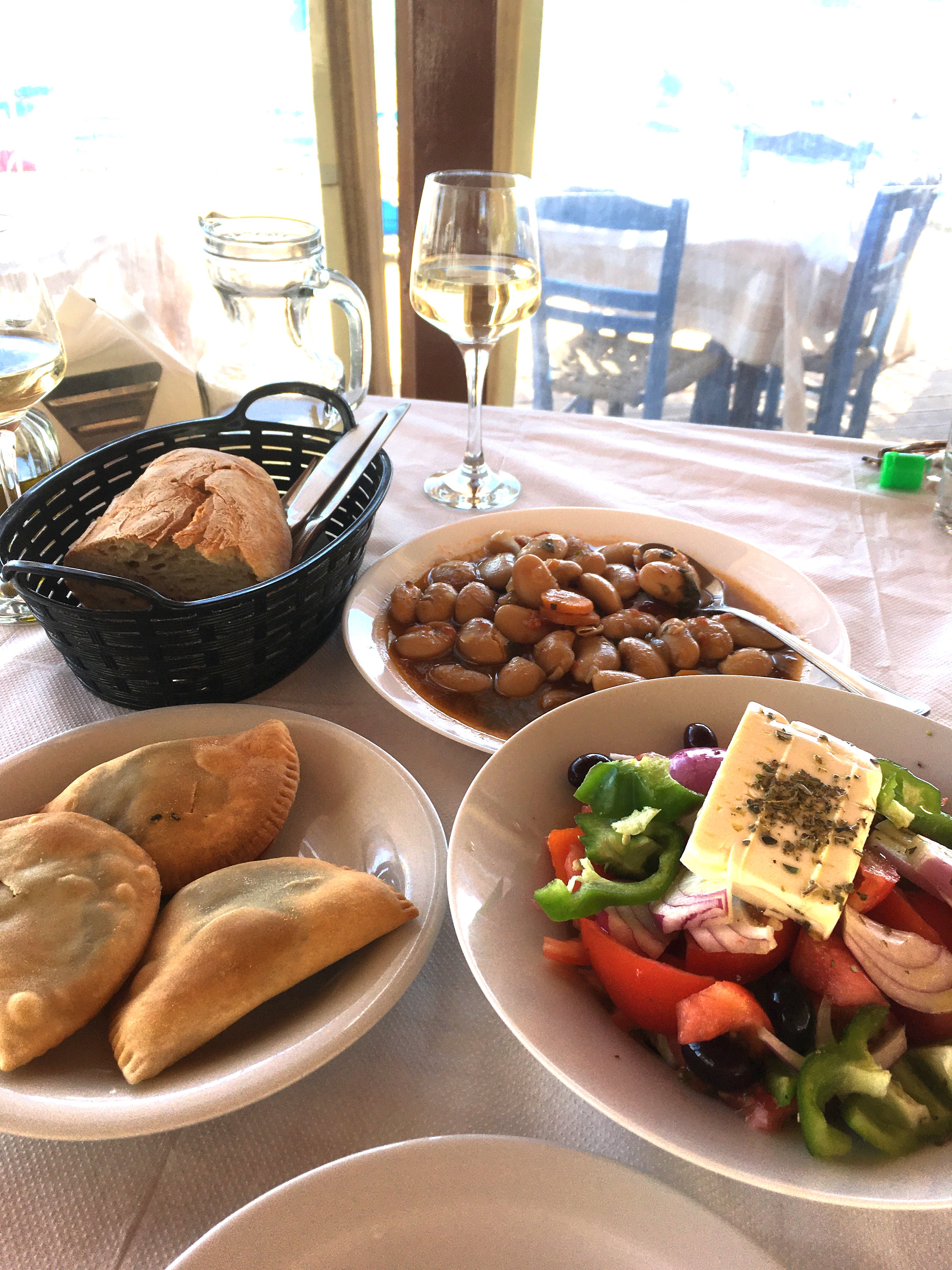
"Imagine a diet where you can eat plenty of oil and bread!"
Meat and fish play only a small part in the traditional Cretan diet and Cretan cooking, and are usually cooked over a grill rather than fried. The main staples of the diet are fruit, beans, pulses and vegetables.
Fruit is abundant on the ancient island of Crete, and literally falls from the trees! In many parts of the island you can pick fruits from the trees all year round. From November to April the oranges trees and other citrus trees like tangerines, grapefruits and lemons are laden with fruits. A sweet small orange coloured fruit named Mousmoula, similar to a nectarine, are abundant from March to May.
From June, apricots are plentiful and the shops and markets also have piles of huge water melons packed in cages shaded by the sun with beach umbrellas. The vines are full of fat black and green grapes for wines and deserts in August, and you can often find wild vines with delicious sweet fruits while out walking. In September through to October figs and pomegranates are everywhere and given free with drinks like Tsikoudia Raki at the local Kafeneon. Apples, peaches, nectarines, plums and many other fruits are plentiful during the long hot Cretan summer.
All sorts of dried and fresh beans with vegetables and greens (horta) are a main staple for the traditional Cretan family and almost all meals are accompanied by fresh cooked or raw vegetable and pulses. In the Cretan homes in the villages slow food is prepared with only the freshest of ingredients. Recipes are kept simple with wild herbs added for flavour.
Last but not least is the liquid accompaniment – wine. The benefits of red wine in moderation is well documented, and the Cretan diet embraces the benefits wholeheartedly! At least one, (but more often two!), glasses of wine will accompany the meal. Even quite young children with partake of a small glass.
All in all it sounds like a wonderful diet – plenty of bread, olive oil with everything – and a glass of wine or two with every meal!

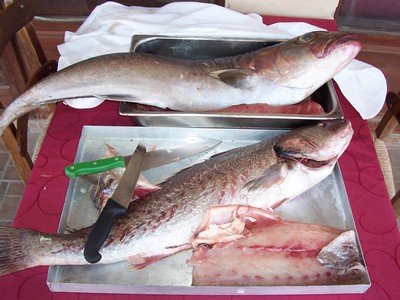
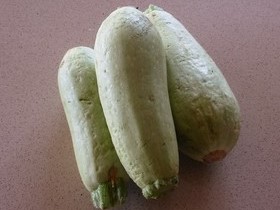
How to Follow the Cretan Diet
Our traditional Cretan diet guide will help you eat like they do in Crete. This will open up for you a whole new world of tasty, healthy eating and Cretan cooking that will improve your well-being and even prolong your life. (Be sure to drive carefully and stop smoking to reap the benefits of a longer lifespan!)
These are the basic rules for the Cretan Diet:
- Use olive oil as the principal fat, replacing all other fats and oils for frying and dressings
- Drink a moderate amount of wine, normally with an evening meal; about one to two glasses per day for men and one glass per day for women
- Eat plenty of fresh fruit as a typical daily dessert; limit sweets with a significant amount of sugar and saturated fat
- Include in your diet lots of food from plant sources, including fruits and vegetables, breads and grains, beans, nuts, and seeds
- Eat low to moderate amounts of cheese and yoghurt daily
- Consume low to moderate amounts of fish and poultry weekly; and limit eggs to a maximum of four per week
- Include red meat rarely perhaps just once per week
The Simple Key Secrets of the Cretan Diet
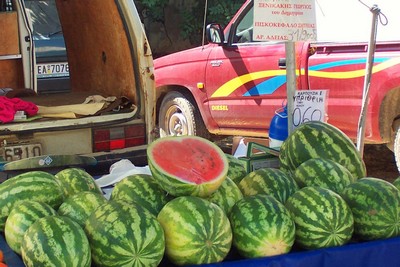
A major key feature of the Cretan Diet is its simplicity. There are no fancy sauces or tricky soufflés. There’s no difficult combinations or strange exotic ingredients. All you will need is a basic store cupboard of ingredients and then simply get in what you need for each individual recipe.
Another feature of the Cretan Diet is the freshness and quality of the ingredients.
For example, Artichokes grow wild here and are picked, prepared and eaten the same day.
Always try to get local produce, in season. This is the tastiest and the healthiest of foods. Produce that has travelled round the world in refrigerated containers always loses some of its nutrition and taste. It’s not natural to eat non-local food, and it’s so important to consider the environmental impact of continuing to develop a taste for foods that have to travel round the world before they finally find there way onto someone’s dining table.
Your store cupboard ingredients, plus one or two additions, will enable you to reproduce this remarkable way of eating for every meal.
We've sourced some authentic Cretan Diet Recipes for you to try and incorporate into, or even replace, your current eating habits. All the recipes will draw on your store cupboard ingredients, plus one or two other ingredients – it really will astonish you how simple and tasty the food is.
Explore further to get the best from this remarkable diet! We hope you have enjoyed our traditional Cretan Diet Guide!
Want to discover even more of what Crete has to offer?
Explore hidden gems, must-visit spots, and insider tips below!
Just Some of the Reasons We Love Crete
Did you love this page? Please share it with your friends!
© Copyright All Original Content 2006 - 2025 Completely-Crete.com. All
Rights Reserved. Reproduction in whole or in part without permission is
not permitted.
Click here to learn about developing your own money-generating website
from Solo Build It! - even with little or no web experience!




